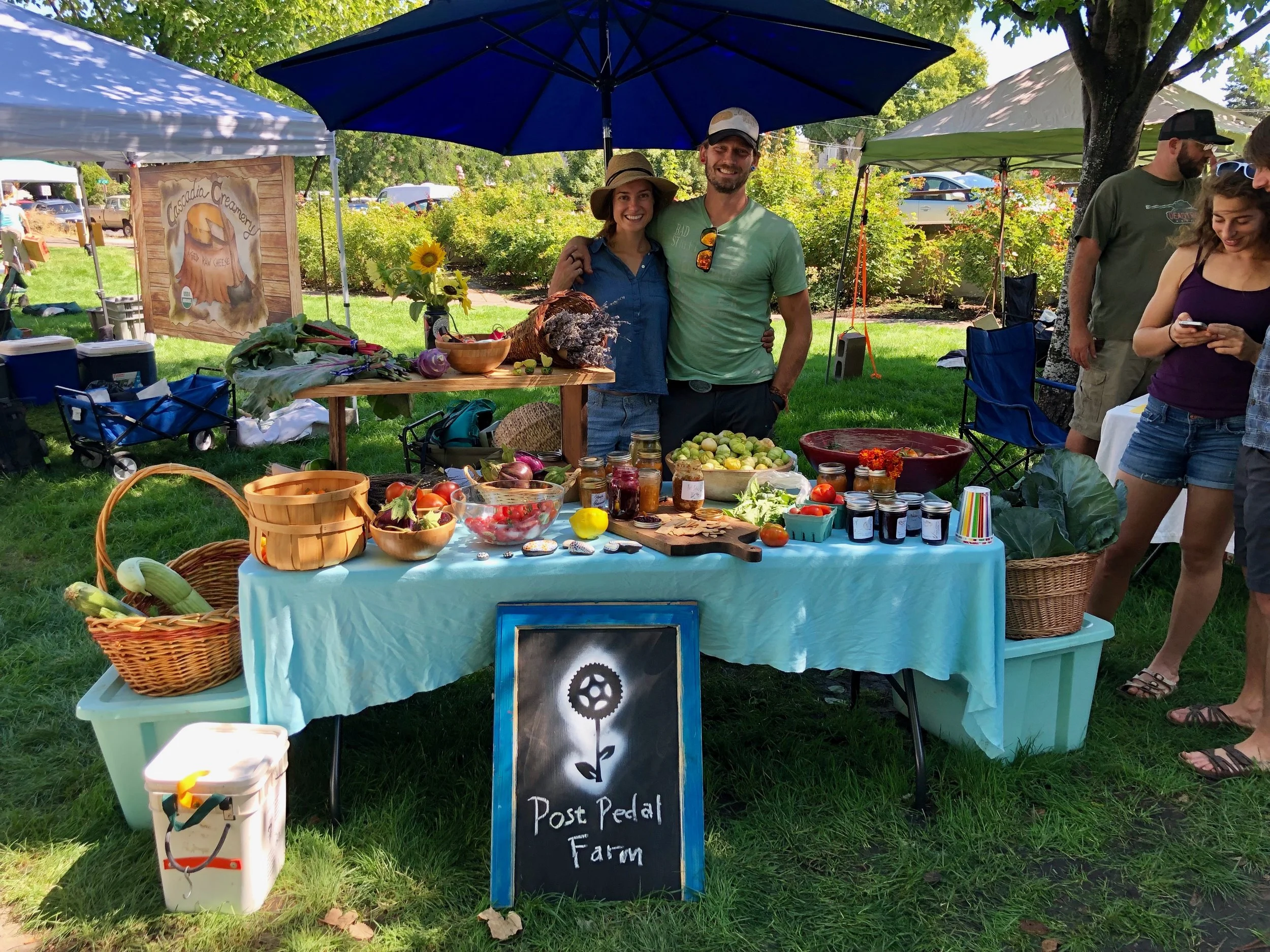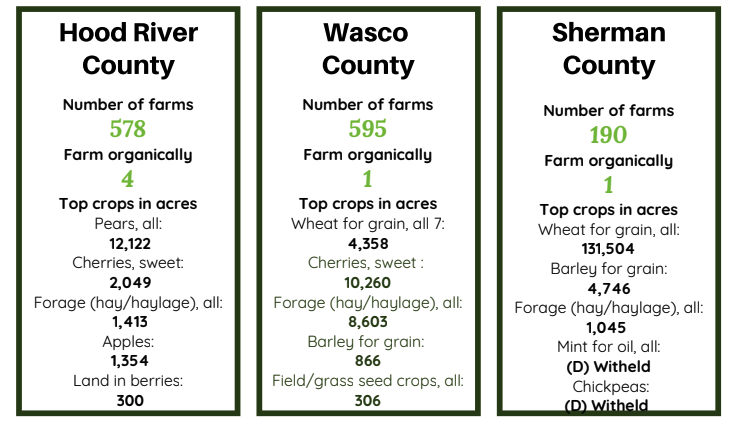Local Food Study: Healthy Food does not come cheap; many still insecure
The Dalles Farmers Market - courtesy Gorge Grown Food Network
From the North Central Public Health District:
The first community food assessment in more than a decade found the food system is well connected in the Gorge, with strong organizing work being done in tight-knit communities, especially in rural areas like South Wasco County and Sherman County.
That was the good news.
The assessment also found some unsurprising results. For many, food, including local healthy produce, is expensive relative to their income. A 2015 study found 20 percent of people in the Gorge run out of food monthly, and 30 percent worry about running out of food.
Here are some stats pulled from the report on farming in the three-county area.
Farming not paying the bills for most. Additional income is being sought in other occupations.
For the assessment of Hood River, Wasco and Sherman counties, four AmeriCorps volunteers interviewed more than 40 people, including farmers, food bank workers, people who work in restaurants, and people who receive nutrition benefits.
The assessment is part of a statewide project led by Oregon Food Bank intending to build food security and healthier, more stable local food systems. The project was led locally by Sharon Thornberry, the manager of Columbia Gorge Food Bank.
Here is how food insecurity shakes out in the three-county area and what an average meal costs.
Findings included:
With the pandemic, more people were thinking about where their food comes from, and more were interested in gardening and growing their own food
Farmland is expensive and it can be difficult for producers to access the commercial farmland they need
Fresh local food is expensive, but it is a difficult issue because in the big picture, farmers and business owners need to receive payment for their food
Sherman County has seen an increase in locally produced food in recent years.
The Gorge Grown Mobile Food Market has ramped up in the years since the last food assessment in 2010
Two food banks were established in 2020 in Maupin and Wamic, and one was established in Rufus in Sherman County in 2018
Recommendations included:
Expanding community garden access in The Dalles and Sherman County. There is a lot of desire for a garden, but little space, the assessment found
Continue to promote awareness of available food resources like food pantries and the Veggie Rx program, a fruit and vegetable prescription program that gives people vouchers for food
Emily Short, an AmeriCorps VISTA volunteer who recently finished a year-long assignment at North Central Public Health District, helped with the assessment.
“Everyone is really passionate about the work that they do, whether that’s just feeding people or trying to improve the health of the community.,” she said. “You can really see that in the conversations we had.”
The ultimate goal of the assessment is to reduce food insecurity and create a more robust, connected and sustainable local food system.
The food assessment can be found by clicking here.
For more information, please contact the Columbia Gorge Food Bank at 541-370-2333 or find them on the web by clicking here or call North Central Public Health District at (541) 506-2600, visit us on the web at www.ncphd.org or find us on Facebook.




